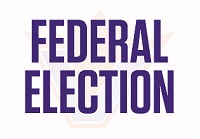CONSERVATIVE Party Leader Erin O’Toole on Sunday introduced his plan to address the opioid crisis as a national emergency and help Canadians struggling with addiction.
Every day, 17 Canadians die from opioid-related deaths. Since the onset of COVID-19, opioid-related deaths have almost doubled.
“Families across this country are mourning lost children, lost parents, lost partners,” said O’Toole. “As Prime Minister, I will treat the opioid epidemic as the urgent health crisis that it is.”
To help those struggling with addiction and save lives, Canada’s Recovery Plan will:
- Invest $325 million over the next three year to create 1,000 residential drug treatment beds and build 50 recovery community centres across the country.
- Enhance the delivery of culturally appropriate addiction treatment and prevention services in First Nations communities with high needs.
- Provide $1 billion over five years to boost funding for Indigenous mental health and drug treatment programs.
- Partner with the provinces to ensure that Naloxone kits are available for free across Canada.
- Reorient the Canadian Drugs and Substances Strategy towards ensuring that every person struggling with addiction has the opportunity to recover.
“As a country, we must recognize that mental health is health,” O’Toole said. “Only Canada’s Conservatives have a plan to make historic investments in mental health and addiction.”
Backgrounder
Addressing Addictions and the Opioid Crisis
To treat the opioid epidemic as the serious health issue that it is and help more Canadians recover from addiction, Canada’s Conservatives will revise the federal government’s substance abuse policy framework to make recovery its overarching goal. This will ensure that all government action and funding related to addictions strengthens pathways to recovery.
The current framework is focused on harm reduction policies, which on their own cannot break the cycle of addiction and protect those who are most vulnerable. A recovery approach builds on harm reduction approaches. It treats patients with the compassion they deserve and offers the medical and peer-to-peer support needed to help those struggling get better and rebuild their lives.
A Conservative government will also reorient the Canadian Drugs and Substances Strategy toward ensuring that everyone suffering from addiction has the opportunity to recover and to lead a substance-free life and that all policies that fall under the Strategy have the reduction of harm and promotion of recovery as their objectives.
Government investments into treatment centres have simply not kept pace with our opioid epidemic. To ensure patient-focused recovery, Canada’s Conservatives will respond to calls from community partners to build the necessary infrastructure to facilitate recovery, including adding 1,000 more beds and 50 recovery centres across the country. This will provide the necessary spaces to those who suffer from addiction, their families, and those who have recovered where they can get the help they need and support each other.
Canada’s Conservatives recognize the unique challenges with mental health and addiction faced by Indigenous communities, especially among young people. As part of the $1 billion commitment over five years to Indigenous mental health programs, Conservatives will support culturally appropriate approaches to address the crises of mental health challenges and addiction, such as land-based treatment programs that include traditional wellness practices developed and managed by Indigenous communities.
Finally, a Conservative government will work with the provinces to distribute more Naloxone kits. Naloxone is a drug that can temporarily reverse an opioid overdose. If used right away, Naloxone can help someone who has overdosed regain consciousness. Making these kits more readily available to first responders, at pharmacies, and in other settings can help save lives.
Quick Facts
- In any given year, 1 in 5 Canadians experiences a mental illness or addiction problem.
- Since 2016, there have been nearly 20,000 opioid-related deaths.
- In Ontario alone, fatal opioid overdoses were up more than 75 per cent after COVID-19 hit in 2020, compared to the year before.














